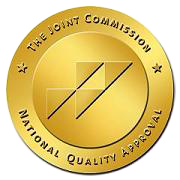How to Build a Self-Care Checklist
Resource Download
“Self-care gives us the opportunity to prioritize ourselves,” says Dr. Allison Chase (she/her), Senior Clinical Advisor at Eating Recovery Center and Pathlight Mood and Anxiety Center. “And using a checklist helps us to be more accountable for doing any activity, especially when related to self-care.”
By engaging in activities that promote well-being and reduce stress, we take care of our minds, bodies and souls, explains Active Minds. Creating a checklist can help bridge the gap between an awareness of self-care and making it a priority in our lives. “It serves as a reminder and also allows you to have something visual, whether it be with pencil and paper or something digital,” says Dr. Chase. “And a checklist also lets you see what you've accomplished.”
Why Should I Create a Self-Care Checklist?
For events we consider too important to miss such as dental appointments, recycling day and airline check-ins, we often set calendar reminders on our computers, phones and watches. Why not do the same with a daily self-care list to prioritize your health? It’s that important. Not practicing self-care can lead to health problems like anxiety, depression and heart disease, while prioritizing self-care enhances your ability to live fully, vibrant lives.
How do I Start Making a Self-Care Checklist?
Self-care requires some self-examination. Ask yourself a few questions to get started on making a checklist that is best for you.
What are my priorities right now?
This often relates with what you have going on in your life. During the holidays, it may be spending time with family, balanced with some quiet time for yourself. At other times, it could be deciding between turning in a school/work project early or taking a few days off to travel with friends.
What do I have time for?
A weekend getaway could be just what you need. If that requires more days than you can spare, how about a day trip to an area park or museum? Do you really need to prepare a homemade meal for your sick friend across town on the same day you have out-of-town guests arriving, or would a delivery service from one of their favorite restaurants be appreciated?
Which parts of my well-being get less attention on a daily basis at the moment?
When is the last time you focused on breathing? Deep breaths allow your body to fully exchange incoming oxygen with outgoing carbon dioxide and have been shown to slow the heartbeat, lower or stabilize blood pressure and lower stress. Maybe your lower back is tightening up and a few stretches each day would help lessen the pain.
What can I cross off my to-do list?
Self-care can be about freeing up space for the things that matter in your life and removing those that steal your energy, even if they’re for good causes. “Being able to just say no because it's not going to work for us falls under self-care,” says Dr. Chase. “It’s a way that we get to prioritize ourselves and it's okay to do that.”
Categories of Self-Care
Once you determine what your priorities and time look like, consider these categories of self-care. This will help you create your self-care checklist. Keep in mind that it won’t be a once-and-done list, but a fluid document that you update to fit your life.
Physical Self-Care
This can include stretching, walking, focused breathing, relaxing your muscles, getting adequate sleep, hydrating and eating well. Each of these activities can help your body function to its best ability.
Social Self-Care
This includes connecting with others in a way that feels restorative or energizing, such as calling friends or family. “Self-care is interacting and socializing with others” says Dr. Chase. She also points out that disconnecting from social media also fits into this category. “It's really important to monitor one’s screen time and social media use,” says Dr. Chase. “That can be helpful given all the data and what we know about the negative impact of social media on one’s mental health."
Emotional Self-Care
This involves identifying, acknowledging and feeling your emotions, as well as expressing your emotional needs and setting boundaries. “I emphasize setting boundaries like interpersonal, emotional, whatever those boundaries are for you,” says Dr. Chase. “It can be challenging but it’s very important.” This category can also include counselling, asking for help, playing, laughing and even positive self-talk. According to research, something as simple as telling yourself “good job” when you complete a task can help begin to turn your thoughts and feelings in a happier direction.
Spiritual Self-Care
This has to do with beliefs, values and a higher purpose in life and might include yoga, meditation, music, religious worship, nature or volunteering. “For some, I think it's about meditation, just connecting with themselves,” says Dr. Chase. "For others, they might have a preference towards whatever religious affiliation that they have. I think it’s also getting enjoyable tasks done that can help you deal with conflict, maybe looking into something that brings you joy.”
The Most Important Self-Care Checklist Items for People in Recovery
While self-care can play a role in preserving your mental health, according to the National Institute for Mental Health, it can also help support your treatment and recovery.
Dr. Chase says that having a plan for self-care in recovery is proactive, and an early goal of recovery work. “We don't like to set that up once the crisis hits or the struggle hits. If we proactively set up all these ways to take care of oneself and how to engage in self-care, it’s time well spent,” she says. “I like the proactive approach and that's a good reason to have the checklist -- it’s something to go back to.”
Eating Recovery Center and Pathlight Mood & Anxiety Center have several self-care resources for those in recovery that are specific to the holidays and others that are relevant to any time of the year. These recommendations include:
- Tell your loved ones what you need from them. When it comes to protecting your recovery, family and friends may not know how to support you. You may need to have direct conversations with family and friends about what feels supportive and not supportive. Whether it’s a family member, friend or mentor, reach out to your personal community to stay connected.
- Breathe. Deep breaths restore important oxygen to our brains, helping us think more clearly and make effective, recovery-focused decisions.
- Be kind to yourself. One slip-up does not define your recovery. Your awareness of maladaptive behavior or thought provides an opportunity to recognize possible triggers and reflect on what you need to do to protect your recovery. Remember your skills and move forward.
- Reach out for support from mental health professionals. One of the greatest strengths is recognizing when we need more support. Reaching out to mental health professionals who can provide guidance, level of care information and keen listening is paramount in helping you move forward on your recovery path. Whatever your recovery needs are, Eating Recovery Center and Pathlight Mood & Anxiety Center are here.
- Get support from your community. Eating Recovery Center and Pathlight offer ongoing online support groups: free support sessions open to anyone in need of some encouragement. Whether you’re an alum, a parent or caretaker or are just involved in our community and social media, you are invited to participate!
Find the right virtual support group for you, and get involved in weekly discussions with our expert clinician teams.
Connect with others by joining one of our free virtual support groups.
Self-Care Checklist
Writing about her own eating disorder recovery, speaker, writer and influencer Lindsey Hall emphasizes that "self-care is advocating for yourself because no one in the world can do that for you."
Make self-care a priority by exploring some of the items on this self-care checklist! Cross off what doesn’t fit your life right now and add the things that do.
- Practice deep breathing
- Meditate or pray
- Do yoga or stretching
- Say a positive phrase to yourself
- Read a chapter of a book
- Do something creative
- Say no to an invite or favor
- Connect with family or friends
- Disconnect from social media for a day
- Participate in a support group



